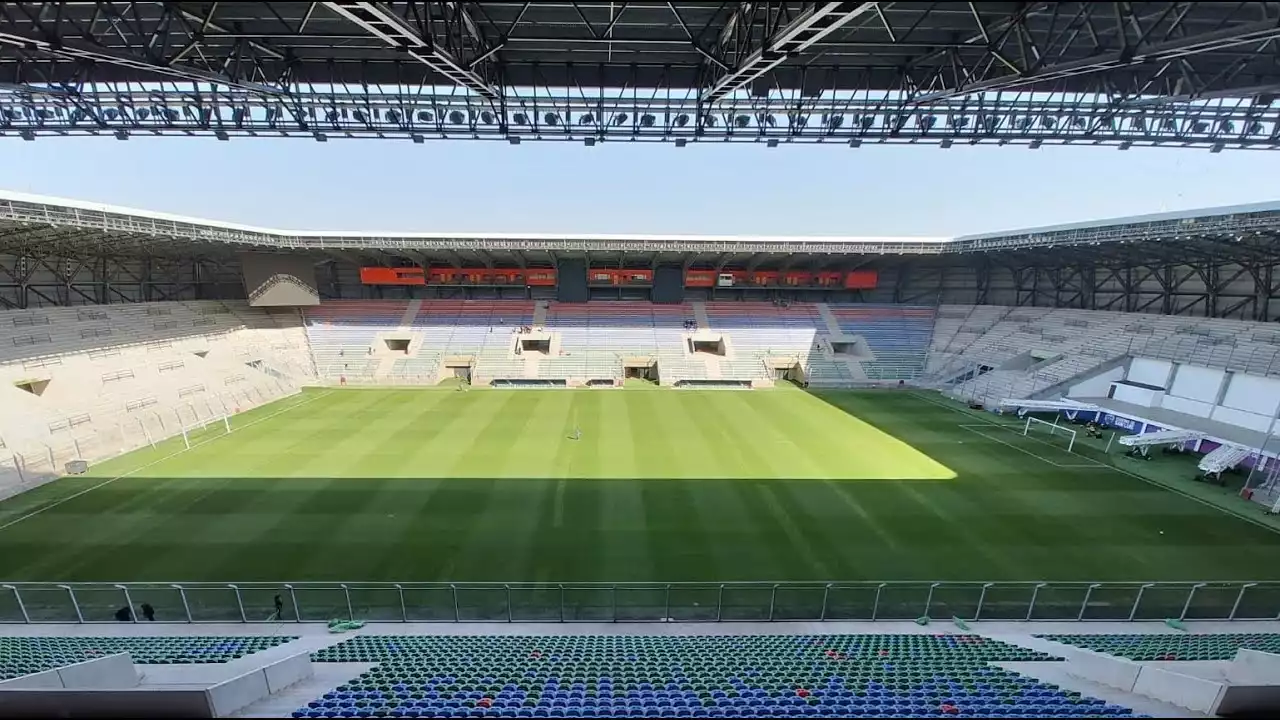The significance of hosting the FIFA U-20 World Cup
Hosting the FIFA U-20 World Cup is not only a matter of national pride but also a significant opportunity for a country to showcase its capabilities on the global stage. The tournament attracts millions of viewers from around the world, bringing attention to the host nation's culture, infrastructure, and hospitality. It serves as a platform for promoting tourism, boosting the economy, and leaving a lasting legacy for the country. However, with great opportunity comes great responsibility, and the logistical challenges involved in hosting such an event should not be underestimated.
Logistical challenges in venue selection and preparation
One of the first and most critical challenges in hosting a FIFA U-20 World Cup is selecting suitable venues for the matches. The stadiums must meet FIFA's stringent standards in terms of capacity, facilities, and safety. This involves a thorough evaluation of existing stadiums as well as the construction or renovation of new ones. The process requires coordination with multiple stakeholders, including local governments, stadium authorities, and funding organizations. Additionally, the preparation of the venues involves ensuring proper pitch quality, installing necessary infrastructure such as floodlights and cameras, and creating a welcoming atmosphere for players and spectators alike.
Accommodation and transportation challenges for teams and fans
With teams, officials, media, and fans converging from around the world, ensuring efficient transportation is crucial. The challenge lies in coordinating the arrivals and departures of multiple teams, often with different flight schedules and requirements. The host country must have a robust transportation system in place, including dedicated routes for teams and officials, as well as convenient options for fans to travel to and from the stadiums. Adequate accommodation is another challenge, as finding suitable and secure lodging for the teams and staff can be a daunting task. It involves negotiating contracts with hotels, managing room allocations, and ensuring the comfort and safety of all guests.
Security measures and challenges during the tournament
Maintaining the safety and security of all involved in the FIFA U-20 World Cup is of paramount importance. The tournament attracts a large number of spectators, making crowd management a crucial aspect of the event. Security measures must be implemented to prevent any potential threats, both inside and outside the stadiums. This includes thorough bag checks, surveillance systems, and a strong presence of security personnel. Cooperation with local law enforcement agencies and international security organizations is essential to ensure the success of these measures. Additionally, contingency plans should be in place to handle emergencies and unforeseen situations.
Ticketing and crowd management challenges
Ticketing logistics pose another significant challenge in hosting a FIFA U-20 World Cup. The distribution of tickets must be carefully planned to ensure fair access to fans from different countries and demographics. Pricing strategies need to be developed to strike a balance between affordability and revenue generation. Fraud prevention measures must also be implemented to combat counterfeit tickets and unauthorized reselling. Crowd management during the matches is equally important, as large crowds can pose safety risks. Organizers must have strategies in place to ensure orderly entry and exit from the stadiums, as well as to manage the flow of spectators within the venue.
Media and broadcasting challenges
The FIFA U-20 World Cup attracts extensive media coverage, both locally and internationally. Providing a seamless broadcasting experience to millions of viewers requires careful planning and coordination. The host country must have state-of-the-art broadcasting facilities, including high-quality cameras, production equipment, and transmission capabilities. Media centers need to be set up to accommodate journalists from around the world, providing them with the necessary resources to cover the event. Additionally, digital platforms and social media channels should be leveraged to engage with fans and promote the tournament on a global scale.
Cultural and language challenges for international visitors
Hosting an international event like the FIFA U-20 World Cup brings together people from different cultures and languages. Providing a welcoming environment for international visitors can be challenging, as language barriers and cultural differences may arise. The host country must have multilingual staff and volunteers who can assist visitors with their queries and ensure smooth communication. Cultural sensitivity training should be provided to ensure that all participants feel respected and included. Moreover, organizing cultural events and activities can help promote intercultural exchange and create memorable experiences for visitors.
Environmental and sustainability challenges
In recent years, there has been an increasing emphasis on the environmental and sustainability aspects of hosting major sporting events. The FIFA U-20 World Cup is no exception. The tournament's carbon footprint must be minimized through measures such as energy-efficient stadiums, waste management strategies, and promotion of sustainable transportation options. The use of renewable energy sources and recycling programs can contribute to a greener event. Additionally, raising awareness about environmental issues and promoting eco-friendly practices among participants and spectators can leave a positive impact on the host country's sustainability efforts.
Legacy and economic challenges for the host country
Hosting the FIFA U-20 World Cup can have long-lasting effects on the host country's legacy and economy. The tournament provides an opportunity to improve infrastructure, such as roads, airports, and public transportation systems, which can benefit the country beyond the event. Investments in sports facilities can create a lasting legacy for future generations of athletes. Moreover, the influx of tourists and media coverage can boost tourism and generate revenue for local businesses. However, ensuring a positive economic impact requires careful planning and management of resources to maximize the benefits and minimize any potential drawbacks.









